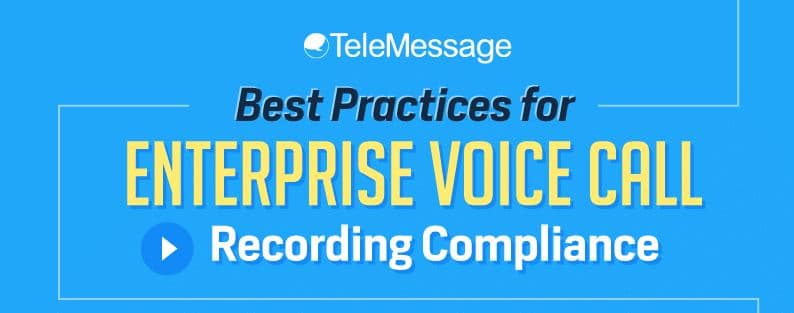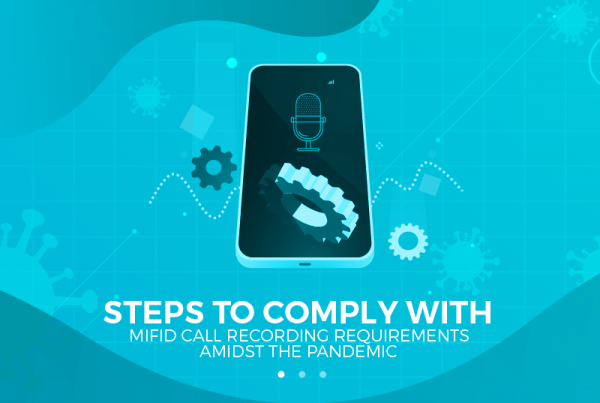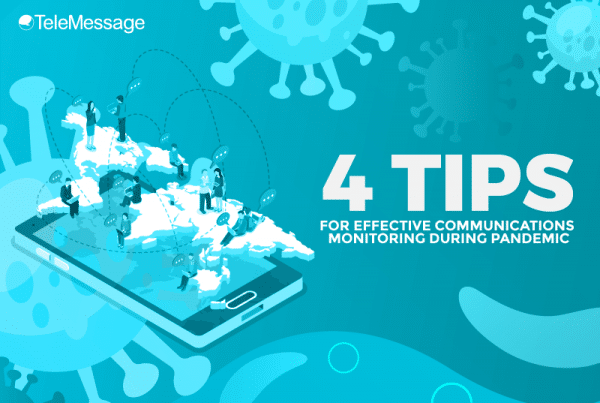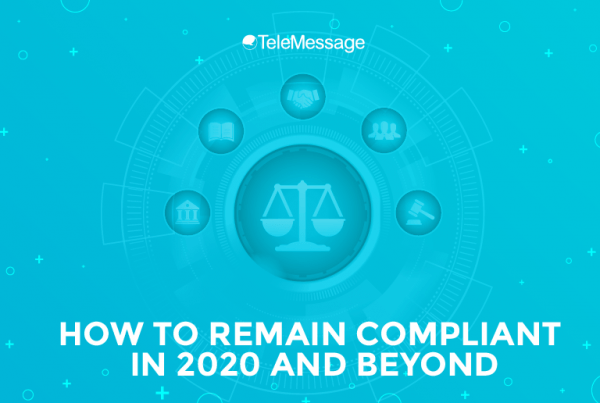In addition to the pressure from regulatory authorities to put in place effective policies and systems to mitigate cybersecurity risks and potential breaches, financial organizations have other core compliance obligations to meet: To archive text messages and record voice calls that are business-related.
Capture Voice Calls
While enterprise text messaging is currently considered to be the fastest growing trend in enterprise mobile communications, it cannot be denied that a substantial number of employees are still using voice calls to communicate with their colleagues and customers. As such, financial companies allowing their employees to use their smartphones to make business-related phone calls must have clear policies and systems in place to ensure they remain compliant with various voice call recording regulations and capture voice calls.
Banks in the U.S., for example, must record all their customer transactions, such as the orders they take from their clients over the phone when buying or selling a stock. Financial organizations must record those voice calls as proof they comply with the request of the customers and that they have not breached any laws.
Read on as we detail in this infographic several financial industry best-practices for voice call recording and WhatsApp call recording.

Always Notify the Caller
Regardless of the device used – personal or company-owned – it is crucial for your employees to notify the caller that their call will be recorded for compliance reasons. When the caller continues the call, it implies their acquiescence to the recording.
One way to notify the caller is to play a pre-recorded prompt which broadcasts the terms and conditions about the voice call recording, and which requires the caller to continue by pressing a designated key on their mobile phone.
Regardless of the recording method chosen, it is extremely important to be transparent (especially to your customers) about how and why the call is being recorded. It helps foster a deeper level of trust as they know exactly what is being done with their private conversation, not to mention that it can help clear your organization’s names in case of any dispute that may arise during the transaction.
Establish Clear Standards for Data Access
It is critical to ensure that only authorized users can access the archive database, such as those that store information related to customer’s financial information, order records, and employees correspondence across different channels. Keep in mind that regulators emphasize the protection and privacy of data – which could include details as seemingly minor as client address or phone number.
Have Clear Archiving Policies and Enforce Them
Many of the biggest breaches in history are not the result of deliberate misuse of customer information, but, rather, human error such as accidentally publishing the private call recording or unauthorized access on the database.
You will be able to minimize the risks of non-compliance and possible penalties and lawsuits by having clear, specific policies that detail how your employees should capture and retain voice calls. These policies must be enforced rigorously by the chief compliance officer to ensure compliance and data protection standards are met.
Invest in an Enterprise Mobile Archiving Platform to Capture Voice Calls
The cost of compliance with archiving regulations can be significant. According to Corporate Compliance Insights, financial institutions typically spend 4% of their revenue on compliance – which could rise to 10% by 2022.
While quite expensive, the cost of non-compliance is much higher and more aggravating. If you fail to capture and retain phone calls, text messages, chat logs, emails, and other types of mobile content, you could face hefty fines and penalties, or even legal actions from FINRA, SEC, and FCA, among others.
To avoid non-compliance sanctions, financial organizations should invest in an enterprise-grade mobile archiving platform that will allow them to capture voice calls, and employ WhatsApp call recording as well as text messages, emails, IMs, MMS, voice chats, WhatsApp messages, and other types of mobile content.
The TeleMessage Mobile Archiver effectively addresses the issues of compliance, regulation, and eDiscovery response requirements and reduces risk across a variety of industries. TeleMessage captures mobile content, including SMS, MMS, Calls, and Chats from corporate or BYOD mobile phones. Messages are securely and reliably retained within TeleMessage servers or forwarded to an archiving data storage vendor of your choice.
Our mobile archiving products securely capture content from mobile carriers and mobile devices for a variety of ownership models (BYOD, CYOD, and employer-issued). With our variety of archiving methods, you can always find the right tools or blend for your requirements:
We are your one-stop shop for international, cross-carrier mobile text archiving. Visit www.telemessage.com today to learn more about our enterprise mobile archiver’s capabilities for capturing voice calls.





